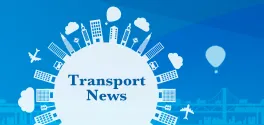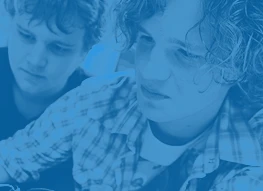TPS Chair's Message April 2022
Clearly the news over the past few months has been dominated by the terrible events in Ukraine. It's been incredible to see the resilience of the nation's transport industry in supporting their country's defence (see for example Boris Johnson praises 'iron people' of Ukraine's railways on his train journey to Kyiv). The TPS Board discussed the crisis at our meeting in March, noting the excellent work being done on logistics for the relief effort by many volunteering agencies. Training agencies like REDR have a less high profile but also have a really important role to play in improving the quality of the humanitarian response. The board agreed that we would promote this organisation where appropriate.
The latest Intergovernmental Panel on Climate Change (IPCC) report on the mitigation of climate change (the catchily titled: Mitigation of Climate Change: Report from The Working Group III Climate Change 2022: Mitigation of Climate Change) therefore got less media attention then it deserved, particularly given the stark warning for our species carried within:
‘Jim Skea, a professor at Imperial College London and co-chair of the working group behind the report, said: “It’s now or never, if we want to limit global warming to 1.5C. Without immediate and deep emissions reductions across all sectors, it will be impossible.”’
There's no doubt that the Transport industry has a herculean task ahead of it to do its bit to decarbonise at the required pace.
To my mind though the key challenges here aren’t so much technical, financial or even political - but societal. As local elections approach there is clearly a sizeable proportion of the electorate who are unhappy at interventions being taken to support the transition, notably around reallocation of road space to active travel and LTNs. As Tony Travers from LSE has put it:
“(Councillors and officers) want cycling and pedestrians given priority. And people say, yes, of course we do want all this, but we don’t want it to affect our capacity to get about. It’s a perfectly respectable position to hold in a democracy. Politicians volunteer to square off these conflicts. That’s what they are there for.”
It’s an incredibly tough gig. I enjoyed discussing this with TPS member James Gleave, who as well as being a transport consultant also sits as a councillor on his local town council. James’ reflections were insightful:
“The political calculation is this. Local elections are typically low turnout, and therefore getting your core vote out is the lowest risk way of getting elected. This leads to a political strategy that focusses on not losing votes, which is reactionary and can often shy away from controversial decisions unless you are in a seat that is so solidly for your party then you can get away with it. That means not backing LTNs.
“The other strategy is more risky when turnout is low. Go against prevailing opinion at the time, but actually give people what they really want: cleaner, safer neighbourhoods with less pollution and traffic. If you pull it off, you can actually get more votes as shown in Waltham Forest where those politicians who backed the Mini Holland scheme actually increased their majority.”
The question for us as practitioners is what can we do to help support those politicians who want to walk a more ‘risky’ electoral path? The answer can only be to keep moving the ‘science’ on about the effectiveness (or otherwise) of different transport planning interventions and capturing the opinion of the electorate on these schemes once they have had a chance to get used to them, and the new ways of moving around they may facilitate. To do this we need to double down on the sometimes difficult (and poorly funded) task of monitoring and evaluation of schemes (there is always the next project to move onto…) and report those outcomes carefully, transparently and without prejudice. TPS has a valuable role here I think in helping to ensure that wheels aren’t being reinvented and best practice is shared widely.
I feel we also need to get better at describing the wider implications of schemes outside of the sometimes dry transport planning metrics of journey time savings and the like, and be able to communicate better their impact on wider issues of wellbeing that elected members can engage with better. On this point, I note that there is unsurprisingly plenty about transport and its role in delivering connectivity and productivity improvements in the Levelling up white paper. However, my impression was that the area where our profession may (and arguably should) have the most important role to play will be in contributing to outcomes around the Pride of Place ‘Mission’ – increasing people’s satisfaction with where they live. For many, ‘place’ means the quality of the public highway and ‘pride’ can be synonymous with the way that public asset is maintained and managed to help deliver on wider wellbeing outcomes. How well do we measure our input into these sort of outcomes as professionals? This is a question I think may become more and more important for us to engage with as the Levelling Up juggernaut moves on to Bill stage and then into legislation.
TPS activity
It’s been an exciting few weeks of TPS activity as we announced a number of in-person events after a two year hiatus. Starting with our first lecture at Jacobs next week (5 May) which follows our first in-person board meeting since the pandemic broke, quickly proceeded by the return of the (in)famous TPS pub quiz (16 June) and annual dinner (14 July). Looking further ahead, the board is heading to Birmingham on 8 September and look forward to an evening lecture there on the city’s exciting new transport strategy. Then finally our big end of year finale – Transport Planning Day – which will include an in-person event at the ICE on the afternoon and evening of the 14 November. Save the date! There are still opportunities for organisations to help shape this campaign through sponsorship – further details here: TP Day Sponsorship Opportunities 2022.
Looking forward to seeing the Board again in person, and also meeting many of our members after a long break.
Best,
Mark Frost
TPS Chair













